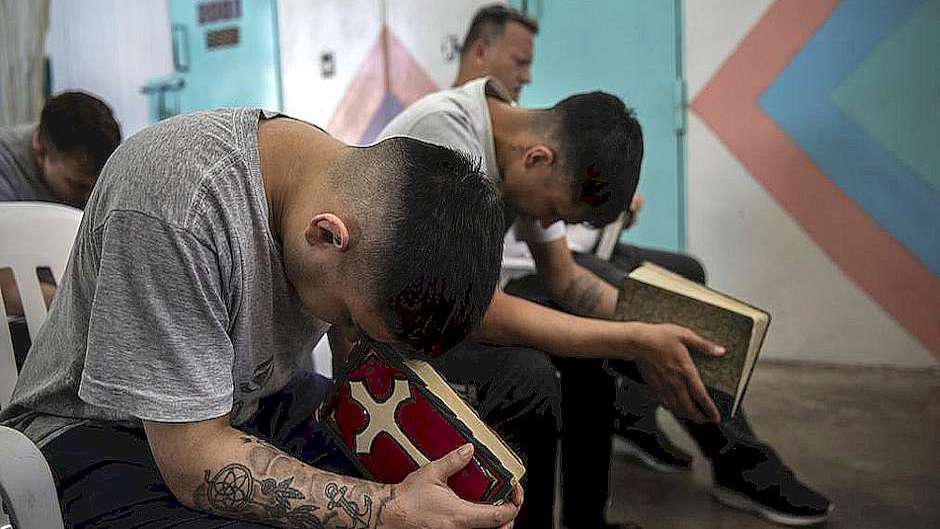Over the past 20 years, prison authorities encourage the creation of units run by evangelical inmates. “We bring peace to the prisons”, says a pastor in the city of Rosario.
 Prisons run by evangelicals are safer and quieter than regular prisons, authorities say./ED.
Prisons run by evangelicals are safer and quieter than regular prisons, authorities say./ED.
In Argentina, the Roman Catholic church remains the main religion. But a survey released by the National Council for Scientific and Technical Research (CONICET) shows that the percentage of Argentinian Catholics has fallen from 76.5% to 62.9% between 2008 and 2019.
Meanwhile, the proportion of evangelicals has grown from 9% to 15.3% in the same period of time.
According to CONICET researcher Verónica Giménez, the evangelical advance in Argentina has occurred, as in most Latin American countries, in all sectors but especially among “the most vulnerable, including prison inmates”.
Walter Gálvez, Undersecretary of Penitentiary Affairs, who is also a Pentecostal, estimates that 40% of the approximately 6,900 inmates in the Argentinian province of Santa Fe live in evangelical wards.
In Rosario, which has a population of about 1.3 million and high levels of poverty and crime, the prisons are full of gang members seeking to control territory and drug markets.
Eighty per cent of the crimes in Rosario are carried out by young hitmen who provide services to drug gangs, whose leaders are imprisoned and keep control of the criminal business from the prisons.
Jorge Anguilante, an inmate of Piñero prison (Rosario), returns home every weekend to minister in a small evangelical church he started in a garage in Argentina's most violent city. On his way out, the former criminal turned pastor greets the guards with a single word: “Blessings”.
His story, of a convicted murderer embracing an evangelical faith behind bars, is common in the dungeons of Santa Fe. Many began selling drugs as teenagers and were caught in a spiral of violence that sent some to their graves and others to overcrowded prisons divided between two forces: the evangelicals and the drug traffickers.
Anguilante assures that his violent life is behind him, that the “Word of God made me a new man”. He was sentenced in 2014 to 12 years in prison for murdering a 24-year-old man.
For the past 20 years, Argentinian prison authorities have encouraged, in one way or another, the creation of units run by evangelical inmates, sometimes granting them some extra special privileges, such as more time outdoors.
The wards are very similar to those in the rest of the prison: clean and painted in light blue or green. They have kitchens, televisions and radio equipment, here used for prayer services. But they are safer and quieter than the regular units.
Violating rules that prohibit fighting, smoking, alcohol or drugs can get an inmate sent back to the regular prison.
“We bring peace to the prisons. There were never any disturbances inside the evangelical wards. And that's better for the authorities”, says David Sensini, pastor of one of the largest Pentecostal churches in Rosario.
Access is controlled by both prison officials and ward leaders who serve as pastors and are wary of gang attempts to infiltrate, permanently controlling who enters.

Las opiniones vertidas por nuestros colaboradores se realizan a nivel personal, pudiendo coincidir o no con la postura de la dirección de Protestante Digital.
Si quieres comentar o